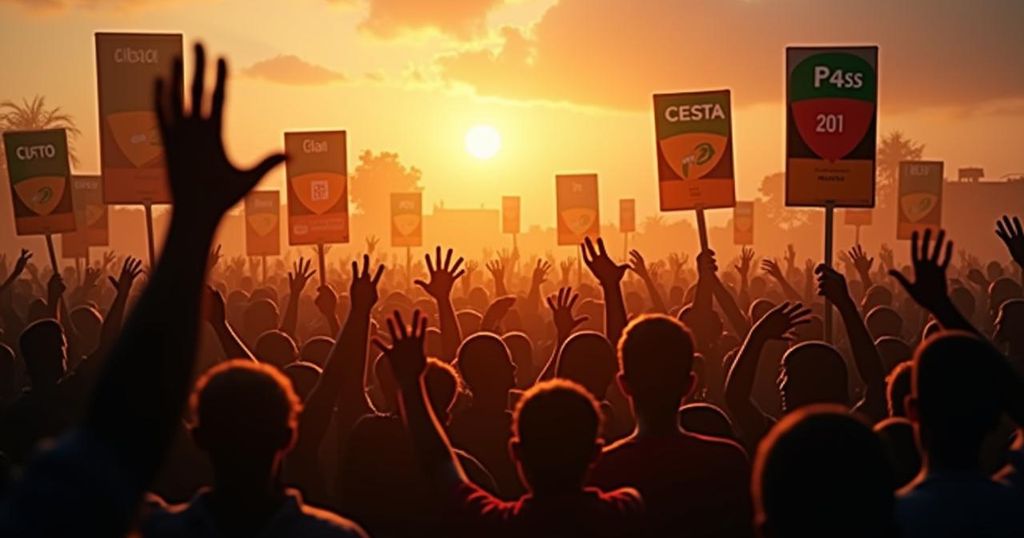Mozambique Elections: Youth Discontent and the Challenge to Frelimo’s Dominance
Mozambicans will vote on Wednesday, with the ruling Frelimo party expected to secure victory despite growing support for independent candidate Venâncio Mondlane among younger voters. Frelimo, in power since 1975, faces challenges from Mondlane, who has energized youth support. Analysts, however, foresee difficulties for the opposition in overcoming systemic electoral manipulation.
Mozambique is set to hold elections on Wednesday, with the ruling Frelimo party anticipated to secure a decisive victory. However, the emergence of an independent candidate, Venâncio Mondlane, has ignited enthusiasm among young voters, who comprise a significant portion of the electorate in a nation with a median age of only 17. Frelimo has maintained its leadership since the conclusion of Portuguese colonial rule in 1975, and is introducing a presidential candidate born post-independence, Daniel Chapo, a relatively unknown provincial governor. Frelimo’s historical rival, Renamo, which endured a civil war with Frelimo from 1977 to 1992, continues to pose a challenge, although it is currently viewed as weakened. Mondlane’s recent departure from Renamo to run as an independent has attracted considerable support, particularly among young citizens. Analysts express skepticism regarding Frelimo’s potential loss of power, attributing it to obstacles imposed on rival candidates. Borges Nhamirre, a researcher at the Institute for Security Studies, remarked, “The election is never difficult for an authoritarian regime. No matter what happens, the final result doesn’t depend on the voters’ will.” Mondlane’s impactful campaigning has encouraged the use of social media by other candidates, along with promises to renegotiate contracts related to Mozambique’s abundant natural resources. Despite the absence of a level playing field, many analysts predict that Frelimo will retain its influence, mirroring its previous electoral victory in 2019, wherein President Filipe Nyusi won 73 percent of the votes. Allegations regarding the manipulation of voter registration processes further muddy the electoral landscape, with the Public Integrity Center citing close to 879,000 fictitious voters among 17 million registered. Though Mondlane’s candidacy has energized some segments of the youth population, it has created divisions within the opposition. Dércio Alfazema, an independent political analyst, stated, “People are not very satisfied with the country’s situation, and many voters will vote against Frelimo. But I don’t think these votes will be enough to remove Frelimo from power.”
The political landscape in Mozambique has been shaped by decades of governance under the Frelimo party, which has faced little significant opposition since the end of its civil war with Renamo. The emergence of Mondlane as an outsider candidate represents a shift in the electoral dynamics, particularly as young voters express discontent with traditional political structures. Mozambique faces substantial economic challenges, compounded by corruption and an insurgency, which has fueled popular dissatisfaction, particularly among the younger demographic. The ongoing struggle for democracy and fair political representation remains a critical issue as the elections approach.
In summary, while the ruling Frelimo party is poised to win the upcoming elections, the introduction of an independent candidate like Venâncio Mondlane could potentially signal a shift in the political narrative, especially among discontented youth. Nonetheless, systemic challenges and allegations of electoral manipulation suggest that Frelimo’s dominance is likely to persist, despite growing dissatisfaction among the populace. The ability of Mondlane to consolidate opposition support and energize the youth electorate remains a pivotal factor in determining the future political landscape of Mozambique.
Original Source: www.theguardian.com




Post Comment